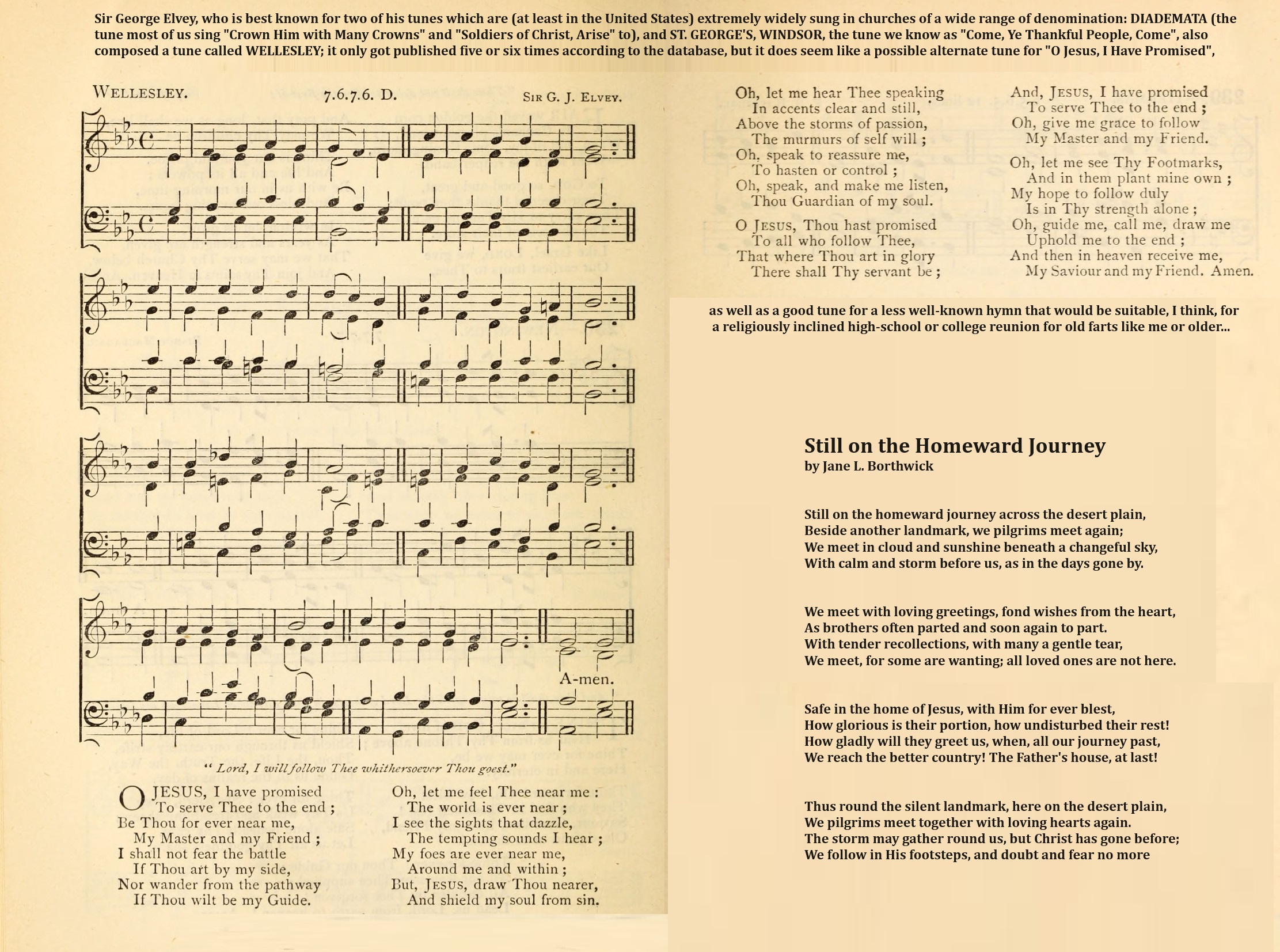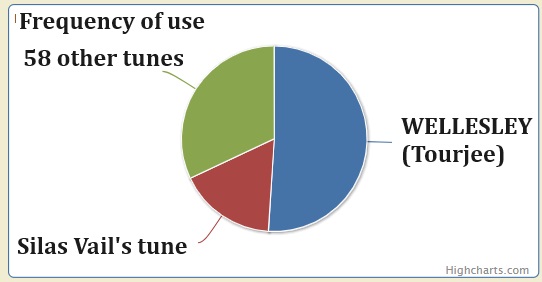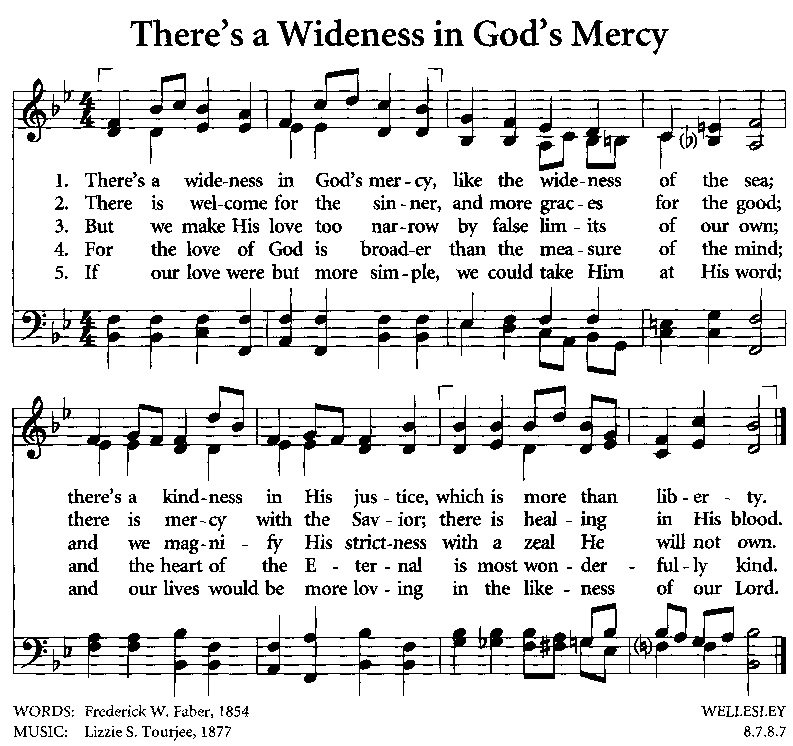WELLESLEY
tr>WELLESLEY was composed by Lizzie S. Tourjée, a 17-year-old student at Wellesley College, in 1875 or '76. Her father, a prominent church music specialist, included it in an 1878 Methodist hymnal he was editing. It has been widely used for "There's a wideness in God's mercy" ever since, and by by World War I it had definitely become the main tune for it in most US hymnals. That lead began to decrease in the 1950s with the rising popularity of IN BABILONE, but in nondenominational and Baptist/Evangelical hymnals it remains the leading tune.
Other texts are rarely set to WELLESLEY; the only ones that have any use to speak of are God Is Love and this metrical version of Psalm 150. It's an 8.7.8.7 tune, so there are a gazillion texts out there that could be sung to it, but few and far between are the hymnals that deliver them.
Lizzie Tourjée's tune is the only widely known tune called WELLESLEY; there are other tunes that were given the name, but most of them have been flashes in sporadic hymn pans. The only other tune with any noticeable use called WELLESLEY is WELLESLEY (Elvey), shown here with two potential hymns to sing to it:

George Elvey composed two extremely widely known and sung tunes, DIADEMATA (the usual tune at least in the United States for both "Crown Him with Many Crowns" and "Soldiers of Christ Arise") and ST. GEORGE'S WINDSOR (the almost universal choice on all sides of the pond for "Come, Ye Thankful People, Come"; if you're looking for something else to sing to it, you might try Hark, the Song of Jubilee or, if it's Advent, Watchman, Tell Us of the Night...
Here's the earliest page scan of WELLESLEY that I've seen. As you can see, although "There's a Wideness" is there, it's not the first hymn given. That was soon to change.

